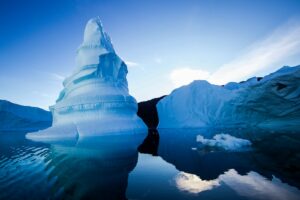A global analysis of over 300 marine species spanning more than 100 years shows that mammals, plankton, fish, plants and seabirds are changing as climate change warms the oceans.
Researchers at the University of Bristol and Exeter reviewed 540 published records of species abundance in order to investigate how they are responding to warmer climates.
The researchers found, as was expected, that many species are facing changes, for example, populations of Atlantic herring and Adélie penguins are declining in the warmer areas of their habitat and increasing in abundance at the cooler areas.
The researchers have said that so far adaptation has not provided a buffer against the negative effects of warmer conditions and as global temperatures continue to increase species are likely to undergo further shifts.
Louise Rutterford, author of the study based at both Exeter and Bristol explained: ‘Marine species distributions are limited by cold temperatures towards the poles and high temperatures towards the equator.
‘We predicted that warming seas would lead each species to increase in abundance at the poleward side of its range, as the warmer climate made the habitat more agreeable. We also predicted that each species would decline in abundance at the equatorward side of its range, as temperatures become too warm to survive.
‘Some marine species appear to benefit from climate change, particularly some populations at the poleward limits that are now able to thrive.
‘Meanwhile, some marine life suffers as it is not able to adapt fast enough to survive warming, and this is most noticeable in populations nearer the equator. This is concerning as both increasing and decreasing abundances may have harmful knock-on effects for the wider ecosystem.
‘We anticipate that marine species will be increasingly affected by climate change.
‘This may lead to opportunity, such as greater catches of warm-water fishes that were previously uncommon.
‘However, there could be negative effects for coastal livelihoods, for example, if warming seas enable harmful warm-water parasites to thrive in aquaculture systems where previously they were rare.’
In related news, researchers at the University of York have said that Marine Protected Areas (MPA’s) are necessary to help manage the main threats facing marine life in the high seas.
Photo Credit – Pixabay
















